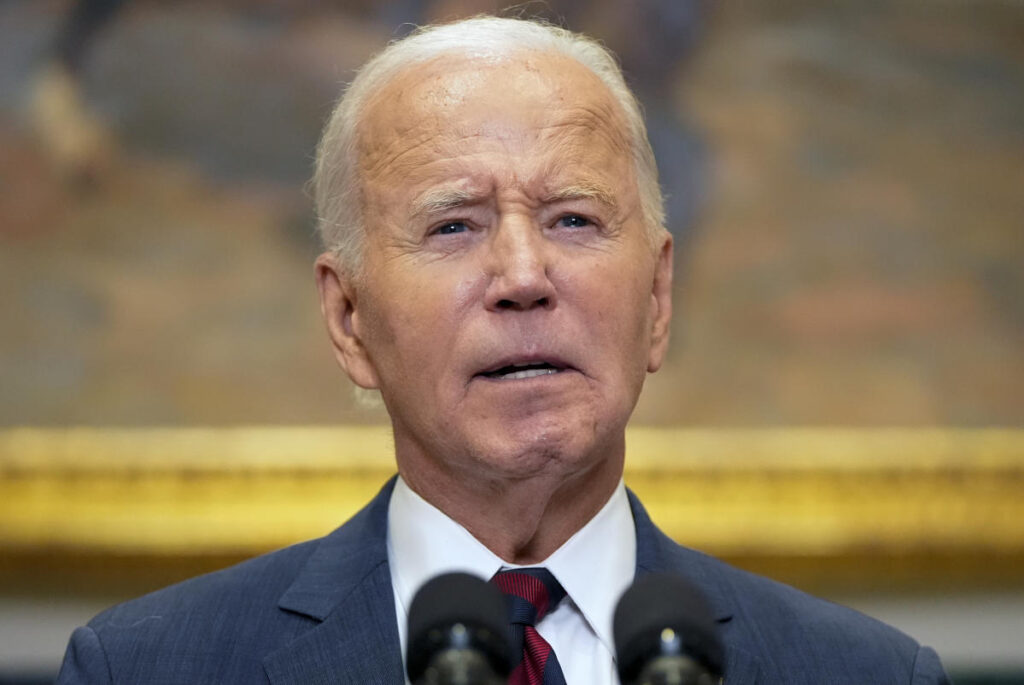President Joe Biden is scheduled to travel to Germany this Thursday for discussions with German Chancellor Olaf Scholz regarding the ongoing war in Ukraine, a conflict that remains a critical issue for both nations and the broader international community. This visit is significant as it follows a rescheduling due to Hurricane Milton, which necessitated Biden’s presence in Washington to oversee federal response efforts in Florida. During his time in Berlin, Biden aims to reinforce the strong alliance between the United States and Germany, particularly in their commitment to supporting Ukraine against Russian aggression. Initially, Biden was set to meet with allied nations at a U.S. military base in Germany to address the war, but that meeting will now take place virtually next month.
The context of Biden’s visit includes high-level discussions with Ukrainian President Volodymyr Zelenskyy, whom Biden spoke with prior to his departure. Their conversation revolved around Zelenskyy’s newly proposed “victory plan,” which suggests bold steps for Ukraine’s future, including an invitation to join NATO and the use of Western-supplied long-range missiles against Russian military positions. However, these proposals have faced hesitance from Kyiv’s allies, and the White House has refrained from commenting directly on them, emphasizing instead the U.S. commitment to support Ukraine on the battlefield. The Biden administration has also announced a military assistance package, further solidifying its substantial support to Ukraine since the onset of the invasion.
Biden’s discussions with Chancellor Scholz are not solely centered on military strategy; they also encompass broader geopolitical collaborations. The two leaders recently spoke about the importance of sustaining strong cooperation in support of Ukraine, with Biden expressing a desire to personally thank Scholz for Germany’s role in facilitating a complex hostage swap involving Russian authorities. Scholz’s leadership has been pivotal not only in the context of Ukraine but also in matters concerning international security, showcasing the deepening partnership between the U.S. and Germany under Biden’s administration.
Reflecting on the political climate, there is evident anxiety in Europe regarding the outcome of the upcoming U.S. presidential election and its implications for Ukraine. The potential return of Donald Trump as a presidential candidate raises concerns due to his past positions on foreign intervention and support for Ukraine. Trump has hinted at a rapid resolution to the conflict that may not align with current U.S. policies. Biden, alongside Vice President Kamala Harris, remains committed to a strong support system for Ukraine, in stark contrast to Trump’s more isolationist rhetoric. This divergence in political ideologies indicates a critical fork in U.S. foreign policy that could influence transatlantic relations and Ukraine’s defense strategy.
In a broader perspective, Scholz’s supportive stance towards Biden reflects a significant improvement in U.S.-Germany relations over recent years. The collaborative efforts in addressing challenges related to geopolitical security and humanitarian issues underline a fruitful partnership. Scholz has publicly acknowledged the strengthened ties with the Biden administration, singling out Biden’s leadership as a crucial factor in this collaborative effort. Their coordinated responses to crises, including the recent prisoner swap involving multiple nations, further highlight the intertwined nature of their diplomatic engagements.
Looking ahead to December, Biden’s scheduled visit to Angola represents a distinct focus on building relations with African nations, a region he has not visited since taking office in early 2021. This visit aims to underscore Angola’s role as a strategic partner in Africa and to explore enhanced collaboration on various fronts, including security and economic development. The desire to engage with African leaders will likely form part of a broader strategy to adapt U.S. foreign policy to changing global dynamics and improve relationships on the continent, thus paving the way for increased interactions in international dialogue. As Biden prepares for these significant international discussions, the implications of his engagements in both Europe and Africa could shape the United States’ global standing and its responses to ongoing conflicts.

